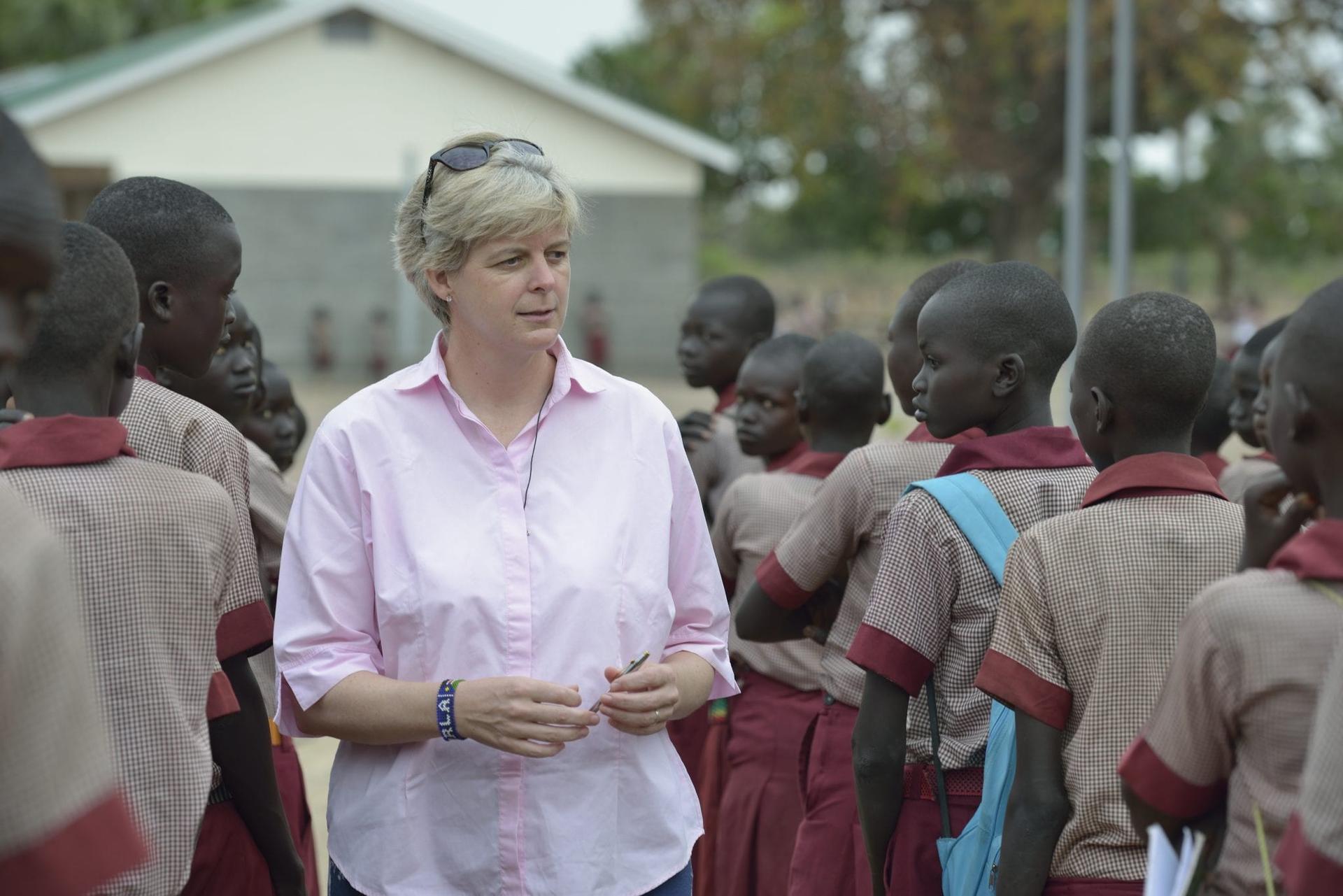ROME – In honor of Saint Patrick’s Day, Ireland’s embassy to the Holy See highlighted the significant and historic role that missionaries from the island have played and are playing in service of those most in need on a daily basis.
Speaking during a brief March 17 virtual reception in honor of St. Patrick’s Day, Irish Ambassador to the Holy See Ambassador Derek Hannon said, “it is not an exaggeration to say that the Irish have a tradition of missionary service going back centuries.”
Missionaries from the area date back to at least the 6th century, when Saint Columba established a monastery on the Scottish island of Iona.
Saint Patrick himself – who at 16 was kidnapped from his native Britain by Irish pirates and who lived as a slave in Ireland for six years before escaping, only to return to Ireland later to evangelize – was also a missionary, Hannon said.
For over 1500 years, “countless Irish man and women have given their lives in the service of God and their fellow man,” bringing with them “their learning, their faith, and their caring, all over the world,” Hannon said.
Irish missionary activity was at its peak in the 18th and 19th centuries. During that period, the Irish Church was arguably considered the primary evangelization force in the world, including the United States.
Irish Catholics had a monumental influence on the Catholicism in the United States, due in part to the large number of Irish immigrants who came to the country, but also its missionaries.
This Irish influence on the U.S. can be seen and heard even today, not just by wearing green or wearing shamrocks on March 17. In fact, American Catholics can thank the Irish for traditional church hymns such as Lord of the Dance, Be Thou My Vision, Morning Has Broken, and countless others.
Sister Orla Treacy, a member of the Institute of the Blessed Virgin Mary, also known as the Loreto sisters, serves as head of the Loreto Rumbek Mission in Maker Kuei, South Sudan, where she oversees a secondary boarding school for girls, a co-educational primary school and a women and children’s healthcare facility.
Treacy, who has lived in South Sudan for the past 15 years, during Wednesday’s virtual reception described missionary life as an “incredibly journey,” noting that Irish missionaries in particular are present all over the world.
“We have missionaries from Monaghan, from Dublin, from Kilkenny, Limerick, Kerry Cork, and me from Wicklow,” she said, adding, “We’re part of a great legacy, and lately that legacy has moved into our lay colleagues, men and women from all over Ireland.”
In South Sudan, “You’ll find them in nearly every village in South Sudan, delivering aid, delivering international support, and supporting the people in different ways,” she said.
A missionary’s life is to be “among the people. We have suffered among the people, Treacy said, noting that two missionaries in her order have been killed in recent years, and numerous others have either been raped, beaten, imprisoned, or tortured.
“That’s the experience of the South Sudanese people, so it’s not for me as a missionary to lament on that,” she said, noting that sadly, this is the reality that many people who live in areas of conflict, not just South Sudan, often face.
Treacy praised Saint Patrick’s role as a missionary, noting that he came as a foreigner, but learned the local language and cultural customs, and was present among the people.
On a personal level, Treacy said she was hesitant to be a missionary at the beginning, saying “I thought missionaries were bible-bashers, I thought missionaries were people who left their homes and never came home again.”
However, “I’ve been very surprised that I’ve lived a very happy life here in South Sudan for the past 15 years,” she said, adding that like Saint Patrick, “we enculturate ourselves among the people. We learn their language, we try to support the people from behind.”
“Some of the modern language I would use for missionaries today are bridge-builders, people of hope, people of empowerment, people who try to engage in conflict resolution,” she said.
While missionaries don’t usually stay in one place for a lifetime, they are present for a time in order to help the people in the best way they can, Treacy said, saying, “I’m there to pass on what I have, to empower the people of South Sudan so that they can be the leaders of their own destiny and their own country.”
“It’s great to be Irish, it’s great to celebrate St. Patrick’s Day and that rich heritage that we have as missionaries,” she said, and praised all other consecrated and lay missionaries working in different development projects throughout the world.
Follow Elise Ann Allen on Twitter: @eliseannallen












